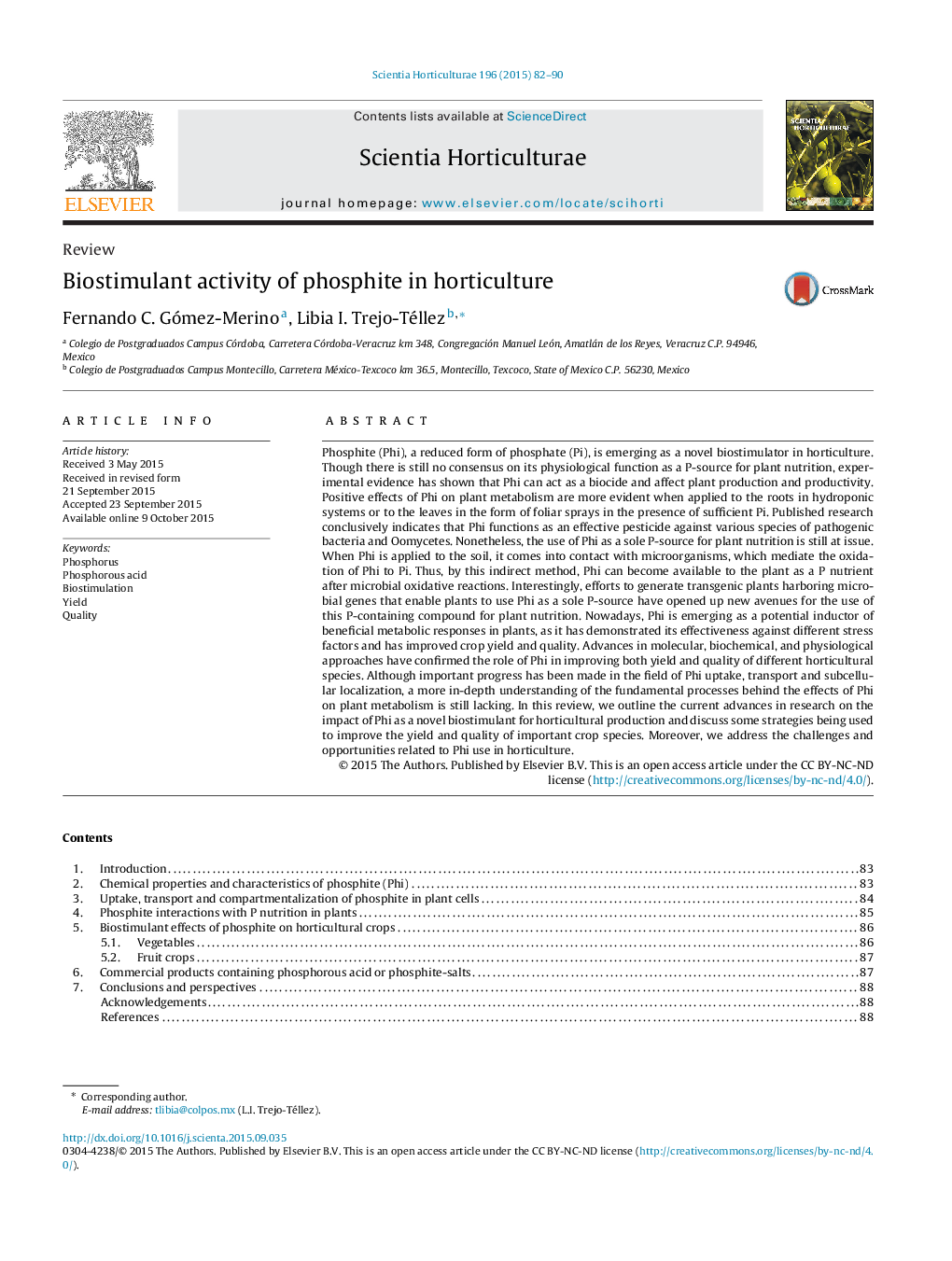| کد مقاله | کد نشریه | سال انتشار | مقاله انگلیسی | نسخه تمام متن |
|---|---|---|---|---|
| 6406475 | 1628802 | 2015 | 9 صفحه PDF | دانلود رایگان |
- Phosphite (Phi) is emerging as a novel plant biostimulator.
- Phosphite has been shown to improve crop yield and quality, as well as stimulate environmental stress responses in horticultural crops.
- Phi has not been proved to have a direct effect on plant nutrition, and should not be considered as a proper fertilizer.
- International regulations on the maximum residual level of Phi in edible horticultural crops can limit Phi application.
Phosphite (Phi), a reduced form of phosphate (Pi), is emerging as a novel biostimulator in horticulture. Though there is still no consensus on its physiological function as a P-source for plant nutrition, experimental evidence has shown that Phi can act as a biocide and affect plant production and productivity. Positive effects of Phi on plant metabolism are more evident when applied to the roots in hydroponic systems or to the leaves in the form of foliar sprays in the presence of sufficient Pi. Published research conclusively indicates that Phi functions as an effective pesticide against various species of pathogenic bacteria and Oomycetes. Nonetheless, the use of Phi as a sole P-source for plant nutrition is still at issue. When Phi is applied to the soil, it comes into contact with microorganisms, which mediate the oxidation of Phi to Pi. Thus, by this indirect method, Phi can become available to the plant as a P nutrient after microbial oxidative reactions. Interestingly, efforts to generate transgenic plants harboring microbial genes that enable plants to use Phi as a sole P-source have opened up new avenues for the use of this P-containing compound for plant nutrition. Nowadays, Phi is emerging as a potential inductor of beneficial metabolic responses in plants, as it has demonstrated its effectiveness against different stress factors and has improved crop yield and quality. Advances in molecular, biochemical, and physiological approaches have confirmed the role of Phi in improving both yield and quality of different horticultural species. Although important progress has been made in the field of Phi uptake, transport and subcellular localization, a more in-depth understanding of the fundamental processes behind the effects of Phi on plant metabolism is still lacking. In this review, we outline the current advances in research on the impact of Phi as a novel biostimulant for horticultural production and discuss some strategies being used to improve the yield and quality of important crop species. Moreover, we address the challenges and opportunities related to Phi use in horticulture.
Journal: Scientia Horticulturae - Volume 196, 30 November 2015, Pages 82-90
